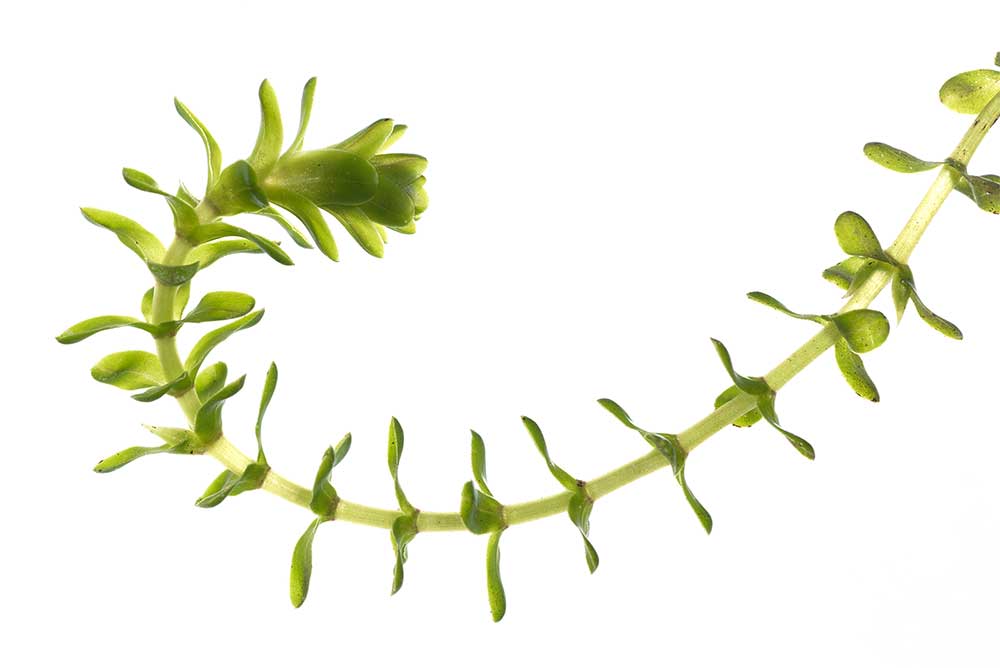Nuttall's & Canadian Waterweeds

Nuttall´s (Elodea nuttallii) & Canadian (Elodea canadensis) waterweeds are underwater plants attached to bottom by roots. Their thin branching stems can grow 3m or more.
The bright green leaves are arranged around the stem in circles (whorls) of three leaves. The leaves of Nuttall’s waterweed are thin, less than 2mm wide, and slightly wider at the base. They curl back strongly towards the stem.
The flowers peek out of the water between May and October. They have three small white petals and are held on long, thread like stems.
Canadian waterweed is also a high-risk invasive species in Ireland. Although it can be confused with Nuttall’s waterweed and its flowers are similar, the leaves of Canadian waterweed are tongue-shaped, much broader in general (up to 4 mm) and not as curled as those of Nuttall’s waterweed.
Nuttall’s and Canadian waterweed can tolerate low light conditions and are difficult to control due to their high growth rates.
All aquatic weeds present the following threats:
They form thick, dense mats that prevent light from reaching native plants and can be mistaken for solid ground by children and animals.
The thick mats also prevent oxygen from entering the water, drastically reducing oxygen levels, which may kill fish and other aquatic life.
A large infestation greatly reduces access for recreational water activities.
Mats of aquatic weeds often result in a bad smell and reduced visibility in the water.
Dense mats can reduce the flow of water and increase the risk of flooding.
Check, clean and disinfect all equipment, boots, wheels and anything that made contact with the water. This will ensure you don’t carry fragments to other possible habitats.
The control of large infestations of aquatic weeds will require the services of an appropriately certified invasive species control company.
If you encounter Nuttall’s or Canadian waterweed please enter the details into our log.
